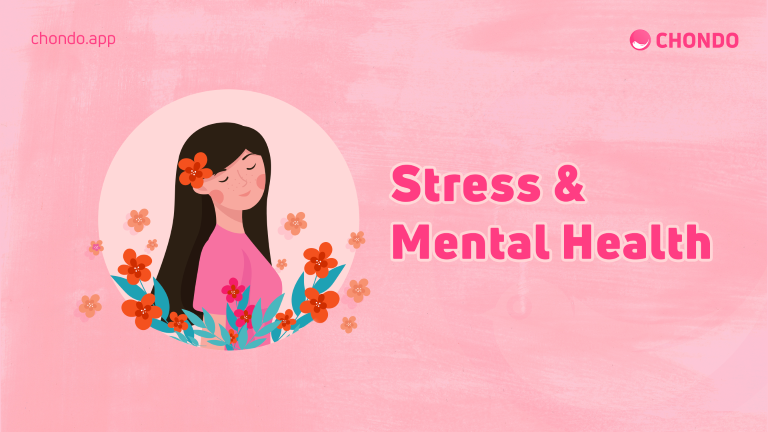Stress & Mental Health
There’s a misconception in today’s world that if you’re not feeling stressed, you are not working hard enough. We live in a fast-paced world where everyone is busy with one thing or another. Stress has become a part of it.
We all feel stressed every now and then. When we become stressed, our body has some natural responses. Your automatic nervous system takes charge and helps you to navigate.
In certain cases, this can help you to think clearer and focus more. However, long-term stress has significant consequences on your mental health.
Some symptoms of long-term stress:
- always feeling anxious and overwhelmed
- the feeling of time is running out
- depressive thoughts
- change in mood
- inability to make decisions or think clearly
- lack of motivation
- decrease in activity
- prone to nervous attacks
and more.
Effects of Stress on mental health
Stress can ruin your mental stability. The feeling of restlessness remains no matter which task you’re performing. At the same time, your ability to perform goes down a lot.
Did you know stress has effects on your sleep and appetite as well? It can make you binge or lose your appetite. Similarly, you can sleep too much to escape the restlessness or can’t sleep at all.
If you ever felt that your memory and attention got worse when you’re stressed, you’re not the only one. This is one of the worst effects of long-term stress.
To cope with such overwhelming feelings, some people may turn to addiction of different kinds (smoking, drinking, bingeing, use of substances, etc.)
Long-term stress can lead to mental illnesses, such as depression, anxiety, and insomnia. Sometimes the cases can get so severe that some people can suffer from PTSD (Post-Traumatic Stress Disorder). It can cause flashbacks of the stressful time. Small things can trigger their response and create a false emergency in their brain.
When it comes to managing stress, it’s vital to take it slow as possible. A stressful job or a situation can create such problems, so you need to evaluate your possible paths. If you continue to take on more work or stress to show your resilience, it will lead to a breakdown one day. Sometimes even small tasks can seem tough.
Reducing stress means changing your lifestyle. So, take a step back from your situation, assess the triggers, and cut them off. Start prioritising yourself and what’s necessary for your well-being. A great way to remain calm is to do medications, do yoga, or exercise daily. Eating a healthier diet can also help to clear your mind.
Download Chondo App
Track your period and get notified.
Download
Beta







